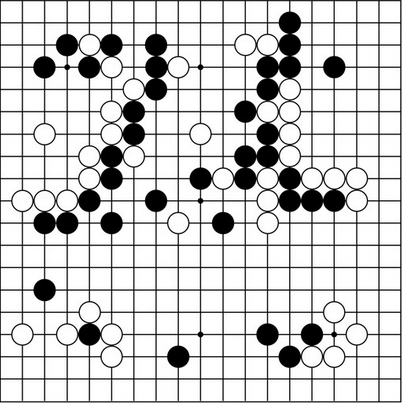AI Deception Technologies
The unexpected move in your AI strategy
Mission
Deceive, derail and misdirect exotic intelligence systems through whatever means, even ones we can't explain. Deliver novel approaches to deception and derailment that challenge conventional thinking and create defensive advantages.
1. Introduction
In March 2016, the AI AlphaGo defeated world champion Lee Sedol in the ancient game of Go. During the fourth game, Sedol performed a "brilliant tsuji", a move so bold, at the time some assumed he had made a fatal mistake and had lost the fourth game in a row. This unexpected move, calculated with a 1 in 10,000 chance of winning changed the course of the game and demonstrated how sometimes the most unexpected things can defeat exotic intelligences.
Move 78 embodies this philosophy through deception, misdirection and derailments. We develop technologies that make unexpected moves to give our clients competitive advantages in their respective fields to defend against attacks by autonomous systems. The approach combines advanced machine learning techniques with game theory to create systems capable of strategic deception and counterintuitive decision-making in domains such as:
- Account takeovers
- Bot and Fraud Prevention
- Attribution and threat categorization
- Web, host and network honeypots and canary systems
- Hackbots and command and control systems
- Adversary decision making systems
Our methodology combines game theory, adversarial machine learning, and cognitive security to develop systems capable of making unexpected yet effective defenses against exotic intelligent systems and their agents.

2. Arsenal
2.1 Core Offerings
2.1.1AI Deception Defense
Our defensive technologies protect systems from adversarial attacks through a combination of game-theoretic approaches and machine learning techniques. We implement multi-layer deception strategies that mislead attackers while maintaining system integrity.
2.1.2Adversarial Research
We develop systems and approaches capable of making unexpected, game-changing moves in competitive environments. These systems analyze vast decision spaces to identify non-obvious strategies that provide significant advantages over conventional approaches.
2.1.3Training
Let us work with your team to level up or inspire their work.
2.2 Theoretical Framework
Definition 1 (Strategic Deception)
A strategic deception is a deliberate action or communication designed to induce an adversary to make decisions beneficial to the deceiver by manipulating the adversary's perception of the decision space.
Theorem 1
In any adversarial environment with incomplete information, there exists at least one deceptive strategy that provides a non-zero advantage over non-deceptive strategies, provided the cost of deception is sufficiently low.
Proof: The complete proof is available in our technical whitepaper upon request.
3. Research Team
Adrian Wood
Founder
Has been called the 'archangel of exploits' by former colleagues, ex WHITEHACK red team and founder, security research @ Wells Fargo, offensive security @ Dropbox
Stealth
TBD
xyz
4. Contact
For inquiries regarding our research, services, or collaboration opportunities, please complete the form below. Our team will respond within 48 hours with relevant information.